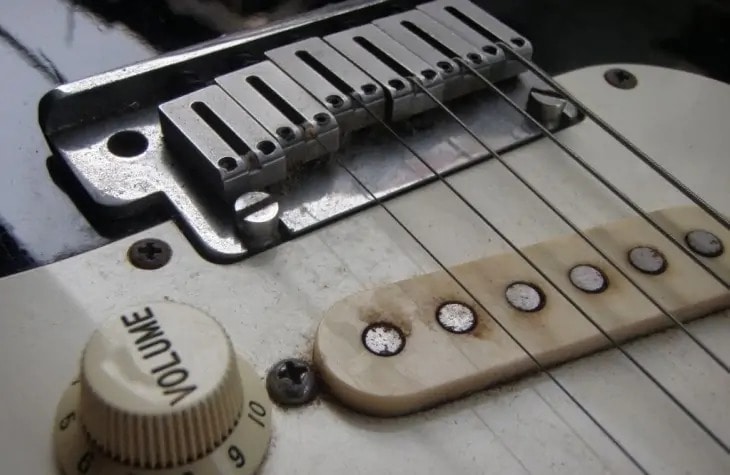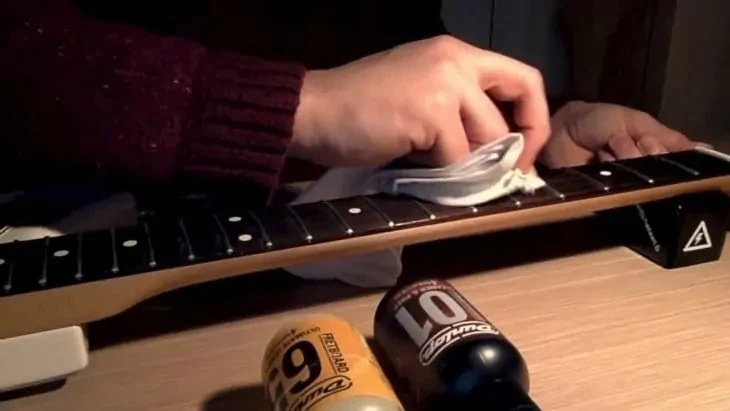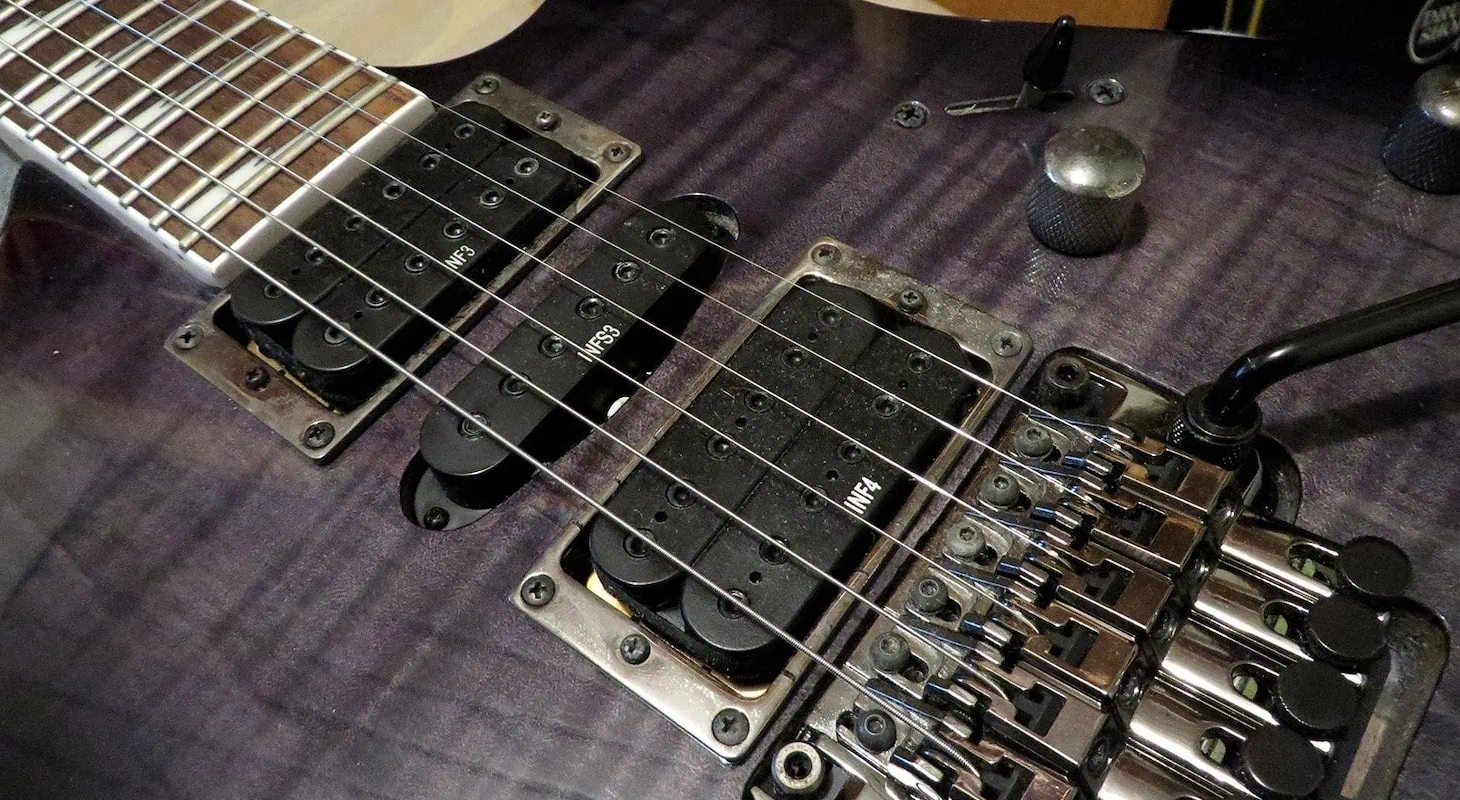If you’ve left your guitar out in the open for a while or your guitar is a few years old, you might have noticed rust starting to form on the metal parts of the guitar.
Don’t panic! A little bit of rust won’t affect the quality of the sound, so it’s not a total crisis. It might, however, be a bit of an eyesore and you still want to get rid of the rust.
The good news is that getting rid of rust is fairly easy and can be done with a few common household items.
Table of Contents
Getting Rid of Rust
 For the most part, the easiest way to clean off the rust from parts is by simply giving them a white vinegar bath.
For the most part, the easiest way to clean off the rust from parts is by simply giving them a white vinegar bath.
Note that this method only works for parts you can remove and non-electrical parts. For electrical parts, you can try using electrical contact cleaners that we’ve covered in this post.
So, open-back tuning machines, knobs, strap buttons, screws, and even the bridge can all be removed and cleaned with white vinegar.
What You Need
- White Vinegar
- Large bowl or plastic container
- Paper towels
- Small pen knife (dental tools work best)
- Metal polish
- Dry cloth
Removing the Rust
Step 1: Pour white vinegar into your bowl or container. Enough to fill it about 3 inches. At least enough to completely submerge the bridge, which should be the largest part.
Step 2: Place everything you want to clean in the container filled with vinegar. Let it soak for about 4 hours.
Step 3: Remove the parts from the container, and wipe them down with papers towels. Be sure to remove all the loose pieces of rust with the paper towels that you can.
Step 4: For any remaining rust, use the knife or dental tools to gently scrape away the rest.
Step 5: Apply a little bit of metal polish (Flitz, Simichrome) to the dry cloth and polish the parts to give them a nice shine.
If there’s still rust on any of the parts, you can repeat the soaking process until all the rust has been removed.
Cleaning Pickups and Closed Back Tuning Heads
Soaking closed-back tuning heads (that don’t have their gears exposed) and pickups is unfortunately not an option.
Luckily, there is another method that is just as easy and effective.
What You Need
- Small bowl
- Baking soda
- Water
- Paper towels
- Dental tools or pen knife
Removing the Rust
Step 1: Mix the baking soda and water together in a small bowl. You want it to be about the consistency of cake icing.
Step 2: Apply the mixture to the rusted areas. A popsicle stick should help.
Step 3: Leave the mixture to sit on the rust for about an hour.
Step 4: Wipe off the mixture with a paper towel, making sure to remove any loose rust.
Step 5: With the dental tools or pen knife, scrape off the remaining rust.
Just like the soaking method, repeat applying and removing the baking soda mixture until you’ve removed all the rust.
Alternate way: Using WD-40 is also effective on rusted components. You can use a toothbrush to scrape off the rust after applying WD-40.
Cleaning the Frets

Of course, you can’t remove the frets but you can scrape off fret rust with some sandpaper and steel wool.
What You Need
- Tape
- Fine sandpaper
- Steel wool
Removing the Rust
Step 1: Apply tape on either side of the fret to protect the fretboard wood and finish.
Step 2: Use the sandpaper (about 600 grit) to remove the worst of the rust.
Step 3: Clean off the fret using the steel wool once the rust has been removed.
Step 4: Apply some metal polish with a dry cloth.
Step 5: Remove the tape.
Other Options for Cleaning Guitar Hardware
You can use a small amount of guitar polish and a microfiber cloth to clean all the non-electrical parts of your guitar. If you use too much guitar polish, it can actually be detrimental by causing rust buildup in metal parts in the long run.
Take special care when cleaning the pickups. I personally don’t recommend using WD-40 of any kind of aggressive guitar cleaning liquids on them.
Conclusion
Now you have rust-free and brand-new-looking guitar parts.
If you want to keep parts from rusting, remember to keep your guitar somewhere with very little humidity or inside a case when not being played.


Is there anything to coat the parts with after cleaning? I live in a humid environment and parts start oxidizing quickly.
Is this method acceptable for cleaning a Floyd Rose?
Yes!